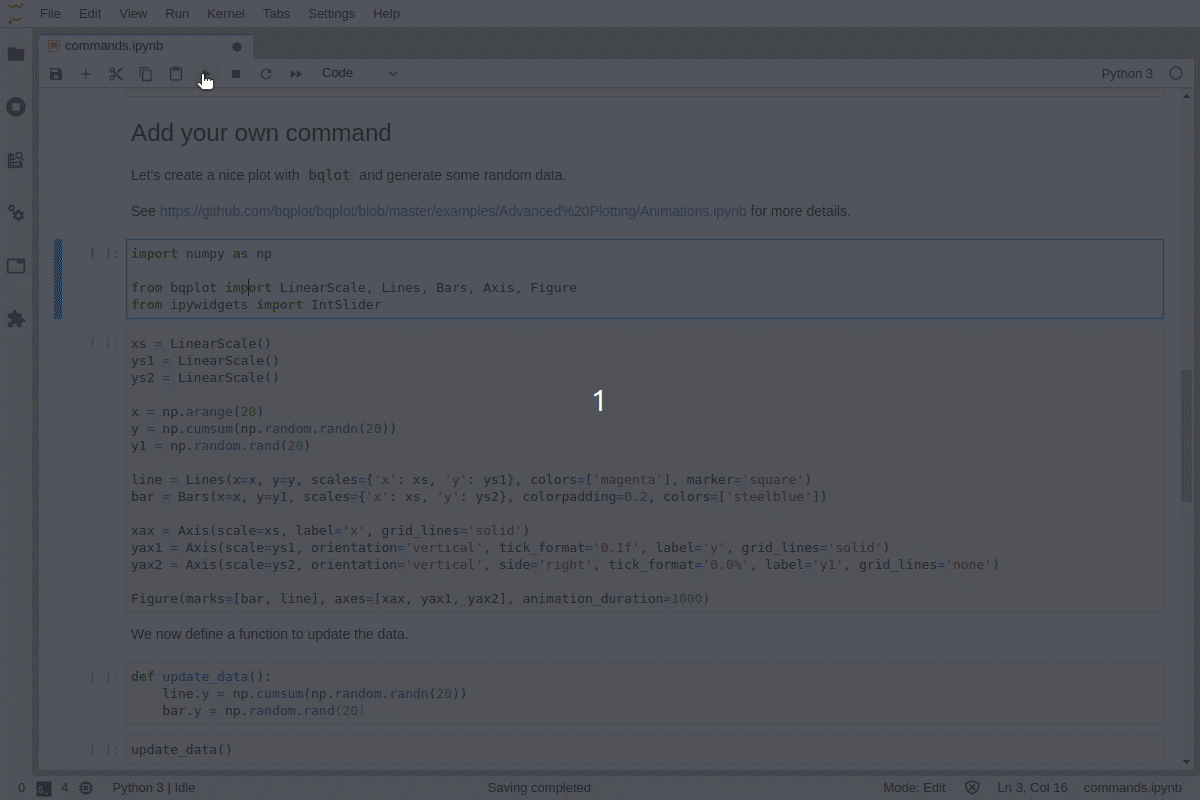
Security News
Research
Data Theft Repackaged: A Case Study in Malicious Wrapper Packages on npm
The Socket Research Team breaks down a malicious wrapper package that uses obfuscation to harvest credentials and exfiltrate sensitive data.
Control JupyterLab from Python notebooks.
The goal is to provide access to most of the JupyterLab environment from Python notebooks. For example:
DockPanel, left, right or top areaSplitPanel, Toolbar and other Lumino widgetsTry it in your browser with Binder:
Or with JupyterLite:




A subset of the features can be used in RetroLab:

You can install using pip:
pip install ipylab
Or with mamba / conda:
mamba install -c conda-forge ipylab
To try out the examples locally, the recommended way is to create a new environment with the dependencies:
# create a new conda environment
conda create -n ipylab-examples -c conda-forge jupyterlab ipylab ipytree bqplot ipywidgets numpy
conda activate ipylab-examples
# start JupyterLab
jupyter lab
ipylab can be seen as a proxy from Python to JupyterLab over Jupyter Widgets:

# create a new conda environment
mamba create -n ipylab -c conda-forge jupyter-packaging nodejs python -y
# activate the environment
conda activate ipylab
# install the Python package
python -m pip install -e ".[dev]"
# link the extension files
jupyter labextension develop . --overwrite
# compile the extension
jlpm && jlpm run build
There are a couple of projects that also enable interacting with the JupyterLab environment from Python notebooks:
DockPanel)FAQs
Control JupyterLab from Python notebooks
We found that ipylab demonstrated a healthy version release cadence and project activity because the last version was released less than a year ago. It has 1 open source maintainer collaborating on the project.
Did you know?

Socket for GitHub automatically highlights issues in each pull request and monitors the health of all your open source dependencies. Discover the contents of your packages and block harmful activity before you install or update your dependencies.

Security News
Research
The Socket Research Team breaks down a malicious wrapper package that uses obfuscation to harvest credentials and exfiltrate sensitive data.

Research
Security News
Attackers used a malicious npm package typosquatting a popular ESLint plugin to steal sensitive data, execute commands, and exploit developer systems.

Security News
The Ultralytics' PyPI Package was compromised four times in one weekend through GitHub Actions cache poisoning and failure to rotate previously compromised API tokens.